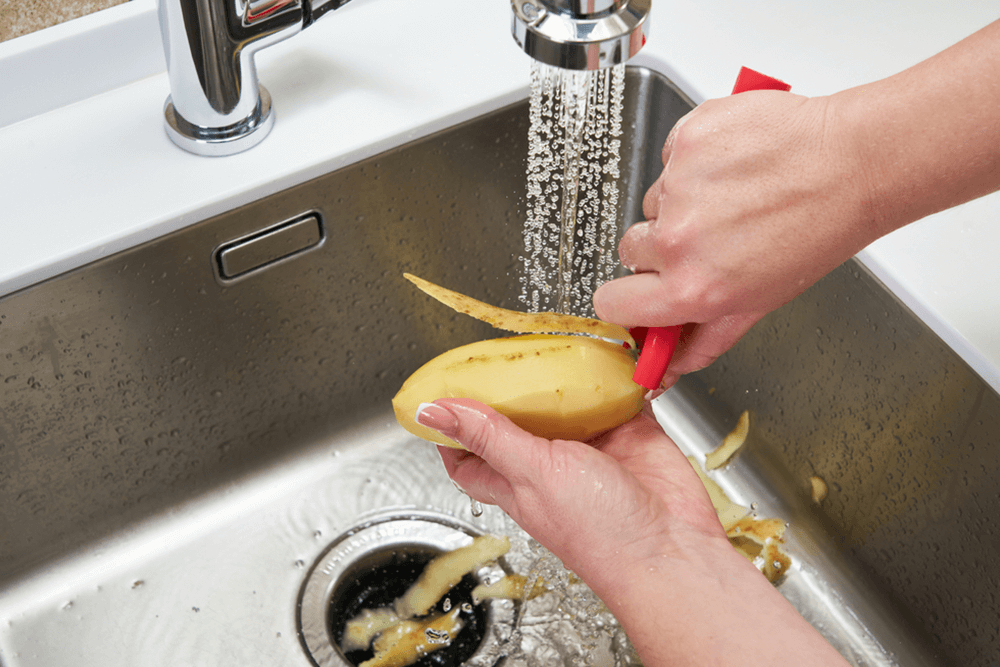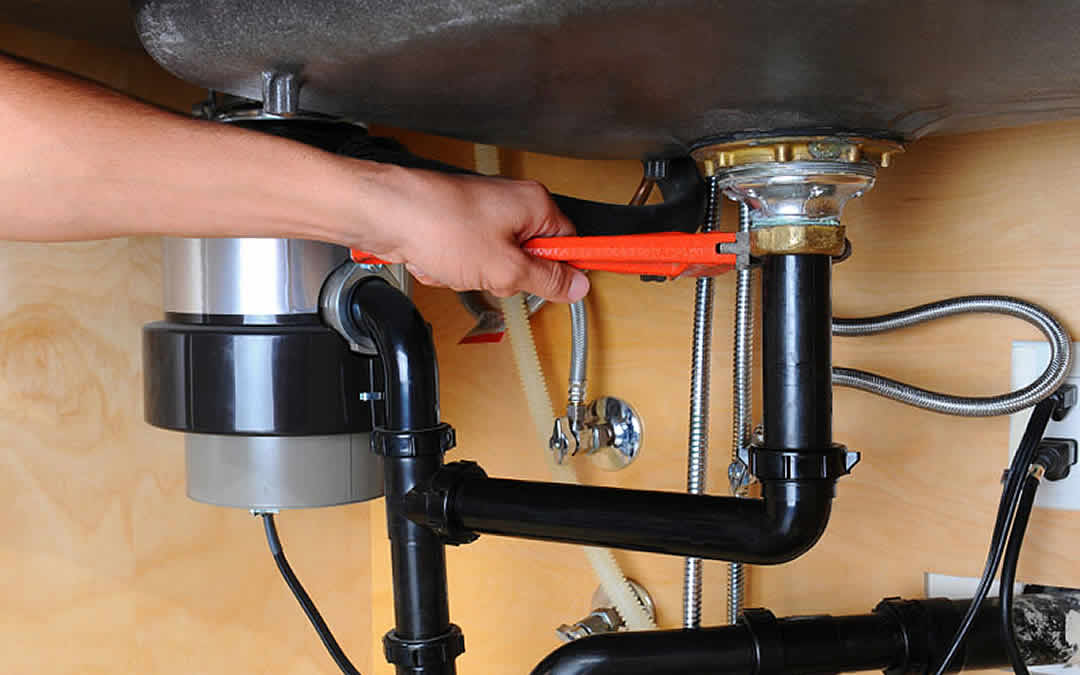Easy Ways to Repair a Leaky Waste Disposal Unit
Easy Ways to Repair a Leaky Waste Disposal Unit
Blog Article
We've encountered this article about Garbage Disposal Leaking From Bottom below on the internet and accepted it made sense to talk about it with you on my blog.

Waste disposal unit are necessary kitchen area devices that aid in disposing of food waste efficiently. Nevertheless, a leaking waste disposal unit can be a discouraging and untidy issue to take care of. Fortunately, many leaks can be fixed conveniently with a few easy steps. In this article, we will certainly discuss just how to fix a dripping garbage disposal properly.
Introduction
Garbage disposals are set up under kitchen area sinks and are created to shred food waste right into smaller pieces, enabling it to go through the plumbing system easily. While these devices are usually reputable, leakages can take place over time due to deterioration, loosened links, or damage to the device.
Step-by-Step Overview to Fixing a Dripping Waste Disposal Unit
Turn Off the Power
Prior to trying any type of repairs, make certain that the power to the waste disposal unit device is switched off to prevent the threat of electrical shock.
Situate the Leakage
Identify the specific place of the leak and identify the cause
Tighten up Links
Use a wrench to tighten up any type of loosened links between the disposal unit and the plumbing system.
Replace Seals or Gaskets
If the leakage results from used seals or gaskets, remove the old components and replace them with new ones.
Patching Cracks or Holes
For cracks or holes in the disposal unit, usage epoxy or an ideal patching product to seal the broken area.
Identifying the Source of the Leak
Before trying to repair a leaking waste disposal unit, it is necessary to identify the resource of the leak. This can typically be done with visual assessment or by conducting straightforward examinations.
Visual Examination
Check the garbage disposal system thoroughly for any indicators of water leakage. Pay very close attention to areas around seals, gaskets, and link points.
Evaluating for Leakages
One means to check for leaks is by running water with the disposal system and checking for any kind of visible indicators of leakage.
Usual Sources Of Leakages in Rubbish Disposals
Worn Seals and Gaskets
Seals and gaskets play a vital role in preventing water from leaking out of the garbage disposal. With time, these parts can degrade, resulting in leaks around the disposal unit.
Loose Links
The connections between the garbage disposal and the plumbing system can come to be loose gradually, causing water to leak out during operation.
Splits or Holes in the Disposal Device
Physical damage to the waste disposal unit, such as fractures or holes in the housing, can additionally lead to leakages.
Devices and Products Needed for Dealing With a Leaking Garbage Disposal
Prior to starting the repair service process, collect the needed tools and materials, including a screwdriver, flexible wrench, plumbing's putty, replacement seals or gaskets, and epoxy or patching product for fixing fractures or openings.
Examining the Waste Disposal Unit After Repair Work
When the repair service is full, evaluate the waste disposal unit by running water via it to ensure that the leak has been solved.
Preventive Maintenance Tips to Prevent Future Leaks
To avoid future leaks, it is essential to carry out routine maintenance on your waste disposal unit. This consists of keeping it tidy, avoiding placing non-food things or hard items down the disposal, and regularly checking for leakages or other issues.
Final thought
To conclude, dealing with a leaking waste disposal unit is a fairly straightforward process that can be completed with fundamental tools and materials. By adhering to the actions outlined in this article and practicing preventative maintenance, you can maintain your waste disposal unit in good working condition and avoid costly fixings in the future.
HERE’S HOW TO FIX YOUR GARBAGE DISPOSAL
WHAT TO DO IF SOMETHING IS STUCK IN YOUR GARBAGE DISPOSAL
If the impeller won’t turn, there’s probably something stuck in the disposal. It could be a steak bone or peach pit, although plumbers report pulling all sorts of inappropriate objects out of disposals, such as bottle caps or aluminum foil. Make sure power to the disposal is off, and look inside to see if you can see the source of the jam.
Never stick your fingers in a disposal. Pull out anything you see with tongs or pliers.
If the disposal still won’t work, it may be time to call a plumber or consider buying a new disposal. GEM Plumbing & Heating is here for all of your garbage disposal needs.
WHAT TO DO IF YOUR GARBAGE DISPOSAL DRAIN IS CLOGGED
Take everything out from underneath your sink and put a bucket or other container under your disposal to catch any water that drains out. Disconnect your disposal from the power supply. If it’s plugged into a wall outlet, unplug it. If it’s hardwired into an electrical box, go to the electrical panel and turn off the breaker for the disposal. Pour ¼ cup of baking soda into the drain, followed by ½ cup of white vinegar. Give the solution a few minutes to fizz and do its work. Look into the disposal with a flashlight to see if you can see an object that might be causing the clog. If you see it, remove it using tongs or pliers. MORE TIPS ON DEALING WITH A CLOGGED GARBAGE DISPOSAL
Never use drain cleaner in a garbage disposal. It can damage the plastic parts inside the disposal. You can also be splashed with the caustic liquid while working to clear the clog. Beware! Never stick your fingers into a garbage disposal. Trust us — not a good idea. In many instances, your dishwasher drains through your garbage disposal. This allows the disposal to grind any large food particles that may be drained out of your dishwasher. There are some jurisdictions, however, where the plumbing code prohibits such a connection. WHAT TO DO WHEN YOUR DISHWASHER DRAINS THROUGH THE DISPOSAL
Run some water in the sink so your plunger has at least a ½-inch of water to create a seal and plunge vigorously up and down several times. You may need to repeat this several times. Run hot water down the drain to clear any residue that remains.

We were shown that report about Garbage Disposal Leaking From Bottom through someone on a different web page. Be sure to take the opportunity to distribute this article if you enjoyed it. Thank you so much for taking the time to read it.
Details Report this page